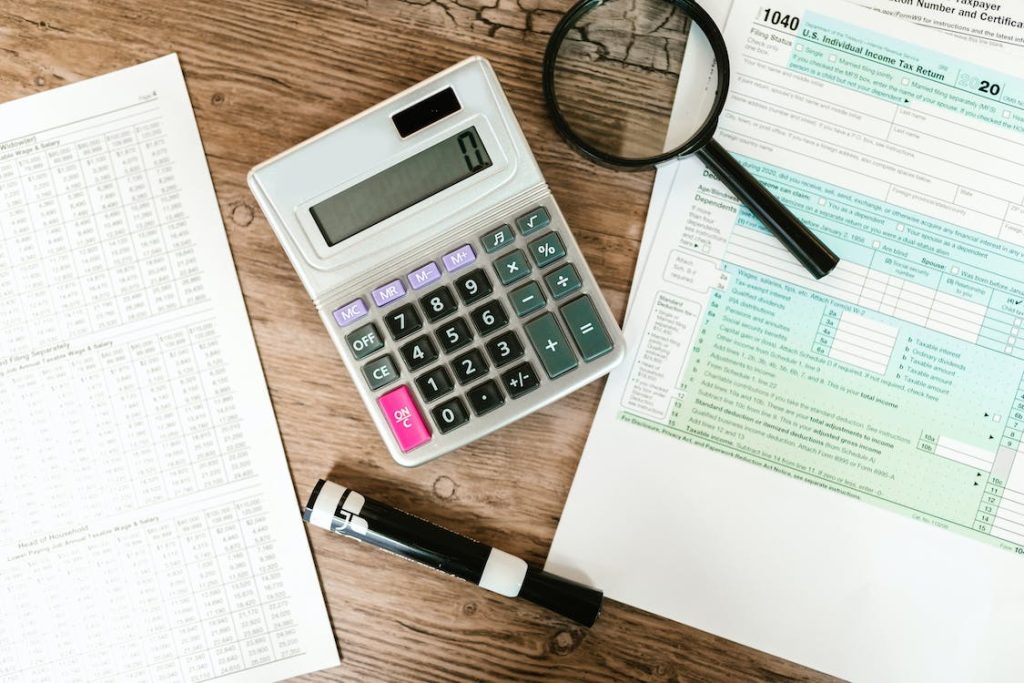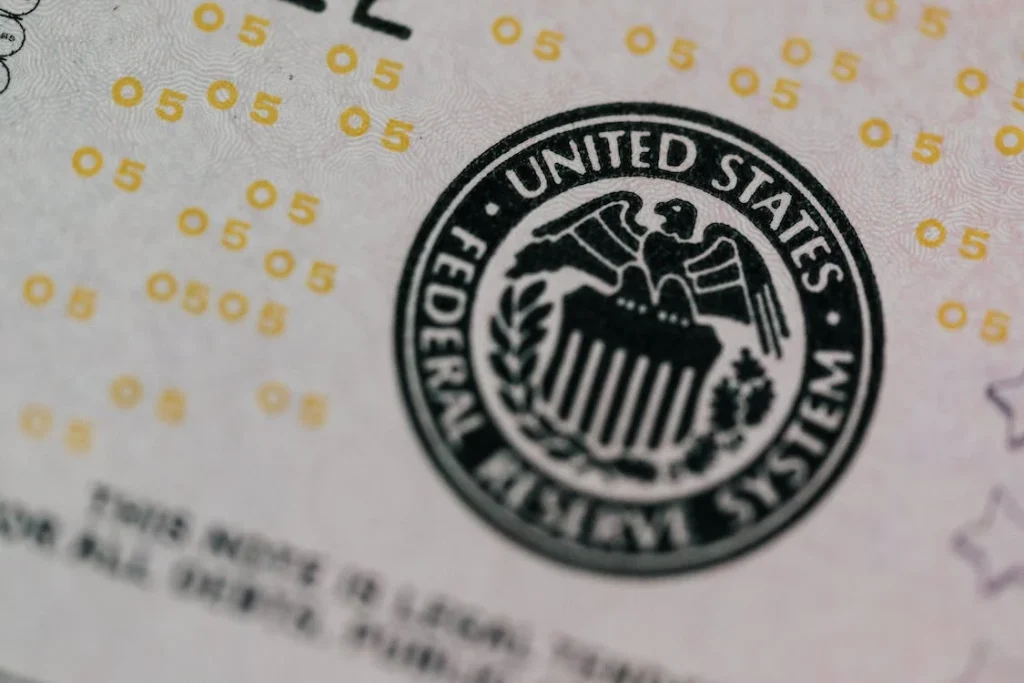The process of dealing with collection companies can be stressful and intimidating experience. Knowing your rights and how to handle debt collectors is essential to safeguard your financial situation.
In this article, we’ll guide you through how to deal with collection agencies. We will educating you of your rights under the Fair Debt Collection Practices Act and provide practical suggestions to handle interactions with debt collectors.
Understanding Collection Agencies and the Collections Process
What is a debt collection agent?
Debt collection agencies are companies which collect unpaid debts on behalf of other people. There are two kinds of agencies for collection: third-party and first-party. First-party agencies are usually an affiliate of the creditor who originally made the loan and third-party agencies are independent corporations that are contracted to collect on behalf of the creditor who originally hired them. Both kinds of debt collectors are governed by laws governing debt collection, which protect consumers from unfair and abusive practices.
The Debt Collections Process
The process of collecting debts is a series of steps that begin with the initial creditor trying to recover the debt by themselves. If they fail the debt could be transferred to a collection agency or sold to the buyer of debt. Each stage has its own set of deadlines and regulations that differ based on the nature of the debt and jurisdiction. Knowing these stages can aid you in dealing with debt collectors more efficiently.

Know Your Rights: The Fair Debt Collection Practices Act (FDCPA)
Overview of the FDCPA
The Fair Debt Collection Practices Act (FDCPA) is an act of the federal government that regulates collections practices for debt within the United States. It safeguards consumers from deceitful, abusive or unfair debt collection methods and offers guidelines to legitimate debt collectors. Learn about this law to ensure that your rights are secured when dealing with debt collection agencies.
Key Protections Under the FDCPA
The FDCPA provides several important consumer protections, including rules and limitations regarding how debt collectors are able to contact you, prevention of abuse and harassment prohibiting false or misleading statements and limitations to unfair practices.
Furthermore, it limits the hours of the day that debt collectors can reach you, as well as the methods to communicate with them. Knowing these fair practices for debt collection will allow you to assert your rights throughout the collection process.
Identifying a Legitimate Debt Collector
Recognizing Debt Collection Scams
Debt collection scams could lead to the theft of your identity and financial losses, therefore it is essential to identify the indicators of a fraudulent collector. Be wary if the debt collector refuses to provide a written proof of the debt. It also requires immediate payment or requests financial or personal details, such as bank account numbers or Social Security number. If you suspect that a debt collection scam, call the office of your state attorney general as well as the Federal Trade Commission for guidance.
Verifying a Collection Agency
To make sure you’re being dealt with by a genuine debt collection agency inquire about their company’s name as well as their address and telephone number. Verify this information by visiting the website of the collection agency or by searching the internet for reviews of consumers. In addition, you should request an official letter of verification, which should contain the balance of the debt and the name of the creditor who originally made the payment and any other pertinent details. If the collector is unwilling to give this information, it’s as a red flag.
Dealing with Collection Agencies: Best Practices
Stay Calm and Composed
If a debt collector approaches you, it’s crucial to be calm and calm. In a hurry or with a sense of emotion, you could cause confusion or agreements that aren’t beneficial to you. Make time to collect your thoughts, look over your financial records, and seek help should you need it.
Keep Detailed Records of All Communication
Keep a log of all communications with debt collectors, including letters, phone calls and emails. This information can be used as evidence in the event there are disputes or claims. Keep track of the dates, times and content of every interaction, and keep copies of the correspondence in a safe location. This method of organization will allow you to manage your rights to collect debts and help you stay safe in the event in the event of legal dispute.
Validate the Debt
Before contacting an agency for debt collection ask for an official letter of verification. The document should contain the amount due as well as the name of the creditor who originally made the payment and any other pertinent details. Examine the authenticity of the information to confirm that the agency that collects your debt is legit. If the information is inaccurate you may send a dispute letter to resolve the problem.
Negotiate with the Collection Agency
If you are able to confirm that the debt is legitimate and that the collection agency is legit, think about engaging with the agency that collects. Prepare for negotiations by examining your options, analyzing the time limit for negotiations and evaluating payment plans or settlement alternatives. Be careful when making partial payments as they could extend the period of time for the debt, which gives the debt collector additional time to pursue legal actions.
Understand the Statute of Limitations
The statute of limitations is a legal limit that varies according to state and type of debt. It affects the length of time a debt collector is able to pursue legal actions against you. Be familiar with the time limit applicable to the particular debt you have to safeguard your rights.
Be aware that in certain states, partial payments could trigger the time limit for the debt. It could also extend the time frame for which the collection account will remain on your credit report. That’s why, when the time limit is near to expiring the debt collector could be keen to negotiate better terms.
Know When to Seek Professional Help
In certain instances you may require professional assistance when dealing with a collection agency. Credit counselors, debt settlement companies and bankruptcy lawyers can provide advice and assistance according to your particular situation. They can assist you to navigate the complex laws of debt collection and help you find a solution for your financial issues.

Disputing Errors and Inaccuracies
How Errors Can Occur in Debt Collection
Errors may occur during the collection process caused by misinformation, misunderstanding, or any other issue. Common mistakes include attempts to collect on debts that have been paid or discharged, errors in the amount of debt or efforts to collect debts that are not within the time limit for collection. If you suspect that there is an error or error, take immediate action to contest the claim.
Steps to Dispute Inaccuracies
To challenge any errors on your credit report regarding collections accounts, first get an original account of your credit history from all three bureaus of credit: Equifax, Experian, and TransUnion. Be sure to scrutinize the reports for any inaccurate collection accounts.
If you find any errors you find, gather the supporting documentation to show the errors. Then, file a dispute with each credit bureau with incorrect information, either via mail, online, or by phone, and provide the required evidence. Finally, follow up with the credit bureaus to make sure that any errors are corrected and your credit report is updated in line with the changes.
Monitoring Your Credit Reports
Always keep an eye on your scores and credit reports to find any discrepancies or issues that could cause problems with collections. If an agency for collection reports the debt to credit bureaus, this could negatively affect your credit scores.
Correct any errors immediately to safeguard your credit score. You can obtain a free credit report from each of the three major credit bureaus – Equifax, Experian, and TransUnion – once every 12 months through AnnualCreditReport.com.
Preventing Future Collections Issues
Create and Maintain a Budget
Setting up and sticking to your budget can help avoid future debt issues. Prioritize debt repayment, and keep track of your expenses to make sure you are within your budget. Making good financial decisions will aid you in avoiding having to deal with debt collectors in the future.
Prioritize Debt Repayment
Create a plan for paying off debts with a focus on debts with high interest first. Think about consolidating debts or negotiating reduced interest rates with your creditors. By prioritizing debt repayment, you will lessen the chance of having to face attempts to collect your debt.
Keep Track of Your Credit Score and Reports
Keep an eye on your credit scores and reports in order to spot any discrepancies or issues that could cause problems with collections. Correct any errors as soon as you notice them to ensure your credit standing. Set up alerts for your credit monitoring to be alerted about any changes to your credit score. By monitoring your credit, you will be able to stop potential debt collection issues before they get out of hand.
Seek Professional Financial Advice When Necessary
If you’re having trouble paying off debts, think about seeking assistance from a financial or credit counselor advisor. They can assist you in establishing an action plan for managing your finances, and help you avoid problems with collections. These experts can offer guidance regarding budgeting, debt management and financial planning, which will help you increase the financial security of your family.

Responding to Debt Collection Attempts
Request Written Verification
If a debt collector calls you, always ask for confirmation of the debt by writing. The written request is a right you have under the FDCPA and assures that the collector has evidence of the debt prior commencing collection efforts. Do not make any payment or contracts until you have received this confirmation.
Know Your Rights Regarding Communication
Under the FDCPA You have the right to decide the manner in which debt collectors contact you. If you would like to stop communicating with the debt collector, you must send your request in writing via certified mail with a return receipt requested. Once you have received your request the debt collector has to stop communication, with the exception of inform the debtor of any legal actions they are planning to take.
Understand the Validation Notice
When the debt collector first calls you, they need to send an authorization notice within 5 days. The notice must contain the total amount of debt and the name of the creditor, as well as details about your rights to challenge the debt. If you don’t get this notification, you could have a reason to make a complaint to the Federal Trade Commission (FTC) or the office of your state attorney general.
Handling Old Debts and Zombie Debts
Old debts, often called ” zombie debts,” are those that have lapsed the deadline for extending their time or were erased by the creditor who originally issued them. Debt collectors can still try to collect on these debts, however, they are not able to sue you for these debts. Be wary of debts that are due to expire by acknowledging the debt or making a payment may start the statute of limitations again.
Be Safe from Property Liens
In certain instances debt collectors might try to encumber your property in the hopes to secure payment. To protect yourself, conduct a thorough investigation of the laws in your state regarding property liens, and consult an attorney if needed. By taking proactive steps, you can protect your property from collection techniques.
Debt Collector Harassment
If a collector is unable to demonstrate that you are liable for them a particular debt, they can’t attempt to get it from you. This is especially true with regard to identity theft, as long as you’ve filed appropriate notifications and report.
If your name appears on the paper but it doesn’t indicate that the debt belongs to you. This is especially true in the case of a common name or if you have relatives with similar or similar sounding names.
Always ensure whether a debt is legitimate before letting the debt collector pressure you to make a payment.
Filing a Complaint Against a Debt Collector
First, you must prove the actions they are doing. You might be able record phone conversations without their knowledge, based on the laws in your state that govern wiretapping.
If you reside in one of these states you cannot make a recording without informing the collector agent:
California, Connecticut, Delaware, Florida, Illinois, Maryland, Massachusetts, Michigan, Montana, New Hampshire, Pennsylvania, and Washington.
If you reside within one of the states mentioned above, ask an observer to listen during the conversations, so you have someone to verify the information that was shared.
File a Complaint with the FTC & CFPB
If you have evidence you have proof, file a formal complaint with the Federal Trade Commission (FTC) or the Consumer Financial Protection Bureau (CFPB). You can also make a complaint to the attorney general of your state.
The FTC maintains an inventory of debt collectors who are prohibited because of illegal collection activities. In the moment of writing there were over 100 companies listed. If any of these companies is calling you they are in a clearly in violation of the law.

How to Remove Collections From Your Credit Report
Dealing with debt collectors is a stressful process and having collection accounts in your credit report may affect your credit score. Collections can stay on your credit report for as long as seven years. Follow these steps to get the collection off your credit report:
- Obtain free copies of your credit reports: Order free credit reports once every 12 months from AnnualCreditReport.com.
- Check your credit report: Verify whether the collection account appears in your credit report. Verify the accuracy of the dates and amounts shown. If there is an error you can contest the report. Note that the credit bureau’s dispute response time increases from 30 to 45 days when accessing your report through AnnualCreditReport.com instead of purchasing it.
- Request validation of your debt from the collection agency: In addition to obtaining copies of your credit history, request confirmation of the debt in the dispute by the collection agency. The agency must reply to you within 30 to 45 days. If they don’t, you could not be liable for the debt.
- Resolve the errors of credit bureaus: Dispute any errors on your credit report including inaccurate dates or amounts and multiple collection agencies reporting the same debt or any questionable items.
- Follow your progress: Keep an eye on your dispute process by recording the amount you’ve paid and the date you’ve made the request. This will help you ensure the best outcome in removing negative credit items from your history.
More Tips for Dealing with Debt Collectors
- Avoid phone conversations: Do not speak to debt collectors over the phone. Inform them of your intentions and that you would prefer to deal with everything in writing, and ask for an official letter describing the debt you originally owed. If they continue to call and contacting you, then send an cease and desist note.
- Record calls: If you have to speak to an individual who collects debt on the phone, you should consider recording your conversation. Be sure to check your state’s laws on recording phone calls since permission might be required. Notifying the person collecting your information of your intent to record may suffice.
- Be wary of the claims they make: Debt collectors could make use of false threats or deceitful tactics to convince you into paying off your debt. Be wary and verify their claims prior to taking any decision.
- Don’t pay or negotiate during the debt validation process: Make sure that the debt has been validated prior to making any payments or negociating. This will ensure that the debt is valid and that the amount is accurate and the collection agency is legally authorized to take the debt. Once you have been validated, you can negotiate or make payment arrangements.
- Do not try to hide your money: The act of hiding assets or money from legitimate debt collection agencies is a crime. However, you must keep your credit card and bank account information confidential.
- Refrain from applying for new credit: Do not apply for new credit lines if you are trying to pay off debts already incurred since this could be considered to be a form of fraud. Concentrate on settling your current debts first.
- Do not ignore debt collectors: The fact that you ignore the issue is not going to make it disappear and could lead to the filing of a law suit for collection. The issue should be addressed on your terms.
Bottom Line
The process of dealing with collection companies can be a difficult experience, but knowing your rights and being able to handle them can safeguard your financial and personal well-being. By following the best practices laid out in this comprehensive guide, you will be able to effectively manage your interactions with creditors, settle disputes, and build an improved financial future.
Always stay up-to-date and make sure you are aware of your rights under the FDCPA and seek out professional guidance when needed to navigate the complexities of debt collection.

FAQs
How can I stop debt collectors from calling me?
Debt collectors shouldn’t be able to continue to call you after you have asked to stop. But simply letting them know via phone won’t do anything. It is essential to make the request in writing and you should send it via certified mail.
After that, they’ll contact you to inform you they will stop collecting efforts or that they are taking an action specific to you, for example, filing an action.
Is it legal for debt collectors to call family members?
They are not permitted to speak to anyone regarding your debt, other than the attorney, you and in some instances the spouse. However, they may contact your family members or friends to determine where you reside to gather contact details so that they can contact or write you.
In the majority of cases they are only allowed to contact your friends and family members once, and are not permitted to make threatening phone calls.
Can debt collections levy my wages?
Some states permit the garnishment of wages, while other states do not. If you reside in the state that does not permit wage garnishment, then it is illegal for debt collectors to threaten to take the wages of your employees.
It’s also unlawful for them to make claims that they can’t or will not fulfill. This includes threats to take action against you or foreclose your home.





4 Comments